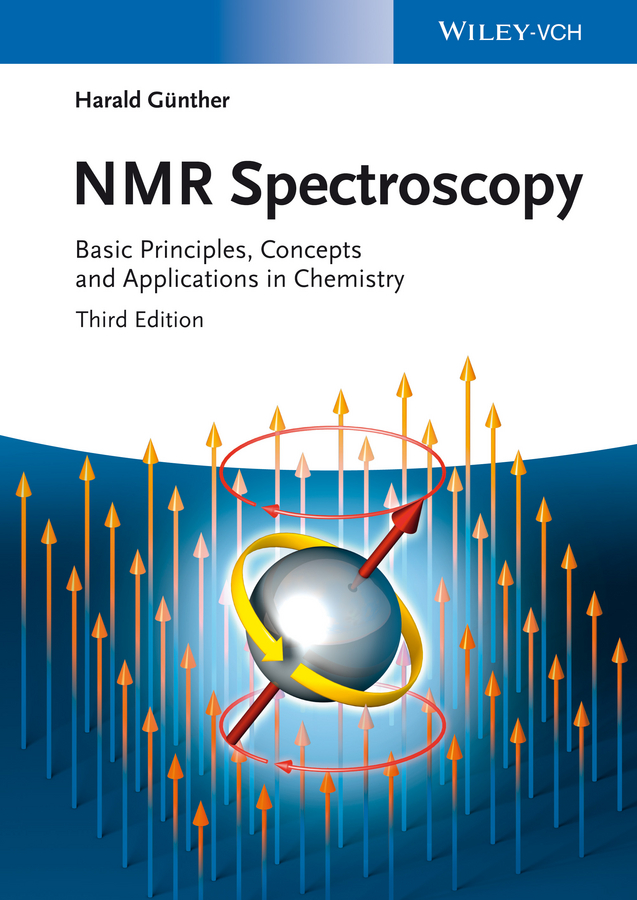Электронная книга: Harald Günther «NMR Spectroscopy. Basic Principles, Concepts and Applications in Chemistry»

|
Nuclear magnetic resonance (NMR) spectroscopy is one of the most powerful and widely used techniques in chemical research for investigating structures and dynamics of molecules. Advanced methods can even be utilized for structure determinations of biopolymers, for example proteins or nucleic acids. NMR is also used in medicine for magnetic resonance imaging (MRI). The method is based on spectral lines of different atomic nuclei that are excited when a strong magnetic field and a radiofrequency transmitter are applied. The method is very sensitive to the features of molecular structure because also the neighboring atoms influence the signals from individual nuclei and this is important for determining the 3D-structure of molecules. This new edition of the popular classic has a clear style and a highly practical, mostly non-mathematical approach. Many examples are taken from organic and organometallic chemistry, making this book an invaluable guide to undergraduate and graduate students of organic chemistry, biochemistry, spectroscopy or physical chemistry, and to researchers using this well-established and extremely important technique. Problems and solutions are included. Издательство: "John Wiley&Sons Limited"
ISBN: 9783527674756 электронная книга Купить за 13976.64 руб и скачать на Litres |
Другие книги схожей тематики:
| Автор | Книга | Описание | Год | Цена | Тип книги |
|---|
См. также в других словарях:
Spectroscopie RMN — Pour les articles homonymes, voir RMN. Spectromètre RMN 200 MHz avec passeur automatique d échantillons utilisé en chimie organique pour la détermination des structures chimiques. La spectroscopie RMN est le … Wikipédia en Français
spectroscopy — spectroscopist /spek tros keuh pist/, n. /spek tros keuh pee, spek treuh skoh pee/, n. the science that deals with the use of the spectroscope and with spectrum analysis. [1865 70; SPECTRO + SCOPY] * * * Branch of analysis devoted to identifying… … Universalium
chemistry — /kem euh stree/, n., pl. chemistries. 1. the science that deals with the composition and properties of substances and various elementary forms of matter. Cf. element (def. 2). 2. chemical properties, reactions, phenomena, etc.: the chemistry of… … Universalium
Chemistry — For other uses, see Chemistry (disambiguation). Chemistry is the science of atomic matter (that made of chemical elements), its properties, structure, comp … Wikipedia
Mathematics and Physical Sciences — ▪ 2003 Introduction Mathematics Mathematics in 2002 was marked by two discoveries in number theory. The first may have practical implications; the second satisfied a 150 year old curiosity. Computer scientist Manindra Agrawal of the… … Universalium
Inorganic chemistry — For the journal, see Inorganic Chemistry (journal). Inorganic compounds show rich variety: A: Diborane features unusual bonding B: Caesium chloride has an archetypal crystal structure C: Fp2 is an organometallic complex D … Wikipedia
